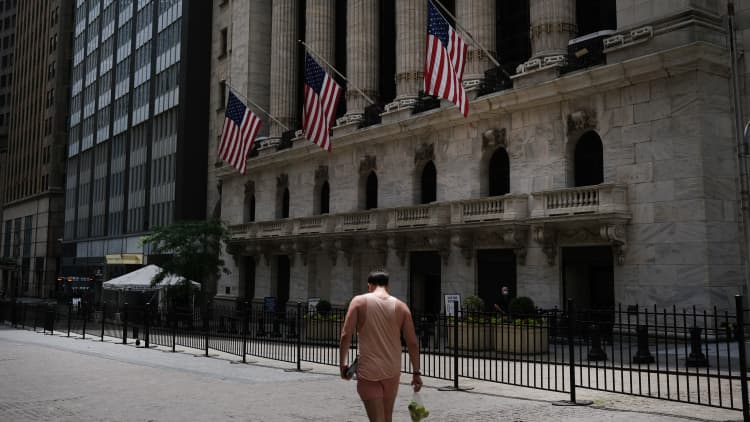
Stocks fell as the number of coronavirus cases continued to rise in the U.S. Here's what three experts are saying about reopening the economy.
Kevin O'Leary, chairman of O'Shares ETFs, sees consumers carrying the economy forward.
"Sixty-plus percent of our economy is consumer demand. Consumer demand has not diminished that much as I've seen across the board. I have businesses in practically every sector from manufacturing gym equipment to high-tech stuff. And we haven't seen any slowdown in demand. Yes, maybe that happens but right now I think I'll be selling those consumers products and enhance my margins materially by digitization, which is why when people say to me, 'Well, how come Facebook, how about Wix, how about Amazon, how about DocuSign, why are these businesses at crazy valuations?' They're not crazy valuations. They are the engine of transition."
John Bryant, CEO of Operation Hope, expects a bifurcated recovery.
"I think it's going to be two recoveries. You're going to have the investor class at the top that has the benefit of higher education and relationship capital and lots of liquidity. And you're going to have that hit with the stimulus in the third or fourth quarter of this year … [Then the] hourly workers – 40% of this country that make $40,000 a year with a high school education and minority small businesses, that recession will feel like a depression. We have a bifurcated recovery in the economy. We need to reconnect the ladder."
Gita Gopinath, chief economist at the IMF, sees a slow economic rebound ahead.
"The first half of this year turned out to be somewhat worse than we anticipated in April. In many countries, the period of the lockdown was extended. And going forward we expect to have much more persistent social distancing because the health crisis is not over. And that's going to have an effect also on potential growth. So these factors led to the downgrade. … We're projecting a very big hit to the second-quarter GDP growth – minus 45% annualized. And then we have a recovery after that but it's hard to make up that big hit. And even if you look at two years later, so by 2021 for U.S., numbers are still below the pre-crisis levels."





